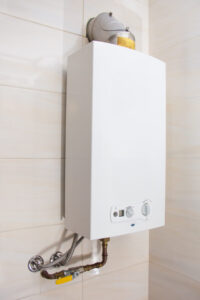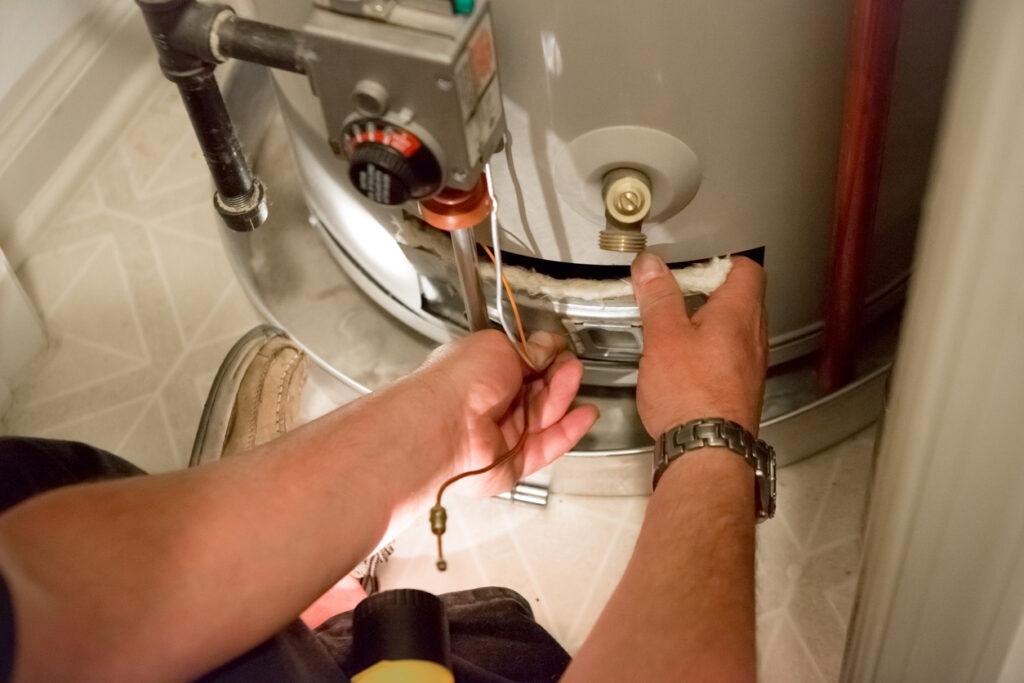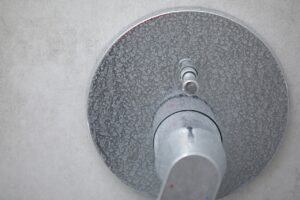Tankless Water Heaters vs. Regular: Which Is Right for Your Home?
When it comes to providing reliable hot water for your home, you have two main options: tankless water heaters and standard storage-tank water heaters. Both systems have their pros and cons to keep in mind. But which is the better choice?
In this blog post, our expert plumbers at Meetze Plumbing will cover the differences between tankless and traditional water heaters, how they work, and the advantages and disadvantages of each so you can make an informed decision for your home.
How Tankless Water Heaters Work

Tankless water heaters, also known as on-demand water heaters, heat water directly without the need for a storage tank. These water heaters run on either gas or electricity, rapidly heating water as it passes through the unit.
When you open a hot water tap, cold water flows into the tankless heater, and the heat exchanger warms the water instantly.
Pros of Tankless Water Heaters
Now that you know how tankless water heaters work, let’s explore their main benefits:
- Energy efficiency: Tankless water heaters are highly energy-efficient because they only heat water as it is needed. By eliminating standby heat loss, they help you save on energy consumption and reduce your utility bills.
- Endless, on-demand hot water: With a tankless water heater, you’ll never have to worry about running out of hot water. Whether you’re taking a long shower or running multiple hot water appliances simultaneously, a tankless system can meet your demands without interruption.
- Space-saving design: Because they don’t require a storage tank, tankless water heaters are compact and wall-mounted, taking up minimal space in your home. This feature is especially beneficial if you’re working with limited space or looking to maximize your usable square footage.
- Long life span: Tankless water heaters require little maintenance and can last between 20 to 30 years.
Cons of Tankless Water Heaters
Depending on your unique needs, there are a few things to consider when looking at tankless water heaters:
- Higher upfront costs: On average, tankless water heaters tend to have a higher upfront cost compared to regular water heaters. Plus, there are also upgrade fees to take into consideration in regards to your home’s plumbing and electrical systems.
- Limited or low flow rate: Endless on-demand hot water from not needing a tank comes at the cost of flow rate, especially if you have high hot water demands in your home.
How Regular Water Heaters Work
 As their name suggests, storage tank water heaters — often called traditional water heaters — use a storage unit to provide hot water and are among the most common water heaters used in most homes.
As their name suggests, storage tank water heaters — often called traditional water heaters — use a storage unit to provide hot water and are among the most common water heaters used in most homes.
Regular water heaters store a predetermined amount of water in a tank and keep it constantly heated until it is needed. When a hot water tap is turned on, the stored water flows out of the tank and is replaced with cold water that the heater then reheats.
Pros of Regular Water Heaters
The main benefits of regular water heaters include:
- Lower initial costs: Due to usually not needing plumbing upgrades, installations for regular water heaters are more cost-effective.
- Tried and tested design: Regular water heaters have stood the test of time. Their straightforward design and long history of use make them a trusted choice for many homeowners.
- Lower repair costs: There’s no shortage of parts when it comes to storage water heaters, making them budget-friendly to fix up and maintain.
Cons of Regular Water Heaters
As many benefits as regular water heaters have, there are also a few disadvantages, depending on your hot water needs:
- Standby heat loss: One of the drawbacks of storage tank water heaters is standby heat loss. As the heated water sits in the tank, heat gradually escapes, requiring the heater to constantly reheat the water to maintain the desired temperature. This process can result in energy waste and increased utility bills.
- Limited hot water supply: With a regular water heater, you have a limited supply of hot water available at any given time. Once the stored hot water in the tank is depleted, you may need to wait for the heater to refill and reheat the water before you can continue using hot water.
- Space requirements: The size of the tank can vary depending on your household’s hot water needs, but it still may be a hassle to accommodate the water heater.
- Shorter life span: Regular water heaters last between 10 to 15 years, whereas tankless ones last over 20 years.
Making the Right Choice for Your Home
Whether you’re looking to enjoy endless hot water or want a traditional system with a proven track record you can trust, our professionals at Meetze Plumbing can help you find the perfect fit for your home.
Call us today at (803) 732-3747 to schedule water heater services.
"*" indicates required fields







